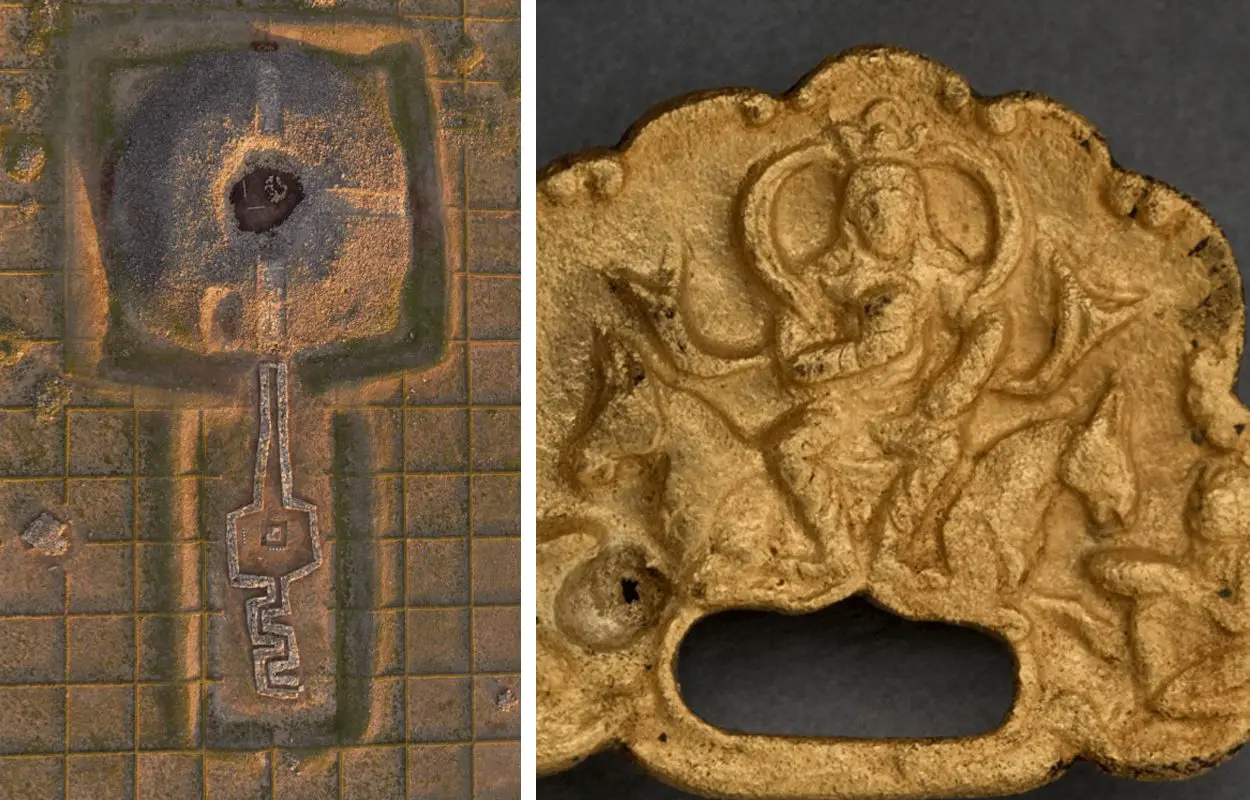Archaeologists have announced the discovery of a Göktürk period cult complex in the Tarbagatay district of Kazakhstan’s Eastern Kazakhstan region.
The discovery was made in 2021, with the results of the excavation only now being announced to Kazakhstan media outlets.
The complex dates from the Western Göktürk period (6th to 8th century AD), when the region was inhabited by a nomadic confederation of Turkic peoples.
Professor Dr. Zainolla Samashev told TRT HABER: “After the United Göktürk Khaganate was divided into two, the state called the Great Turkic Khaganate was established in the area of Western Turkestan. In this political unification, not only the steppe tribes, but also the settled communities in the Sogdian and Khwarezm regions were included. In this sense, the Western Göktürk State was a very rich political country in terms of culture and socio-economics.”
According to the researchers, the site is the first example of a Turkic Khaganate cult complex discovered outside of Mongolia, offering new insights into pre-Islamic Turkic Art and the cultural practices of the Western Göktürk people.
The complex was likely built in dedication to one of the Western Göktürk khans and housed a large mausoleum, a temple, a ceremonial pathway, dozens of small and medium-sized kurgans, and further structures in the eastern zone of the excavation site.
Also uncovered is a statue made of granite depicting a Gokturk Khagan or Yabgu sitting cross-legged, and a belt buckle made of gold plate with an image of the Göktürk Khagan sitting on his throne and holding a crown and goblet.
Professor Dr. Samashev stressed the significance of the uncovered ornamentation as a literary legacy linked to Turkic peoples, emphasizing its importance in this context. The buckle indicates the reputed lineage to the Ashina clan, which rose to prominence in the mid-6th century AD when the leader, Bumin Qaghan, revolted against the Rouran Khaganate and formed the first First Turkic Khaganate.
Header Image Credit : TRT HABER





